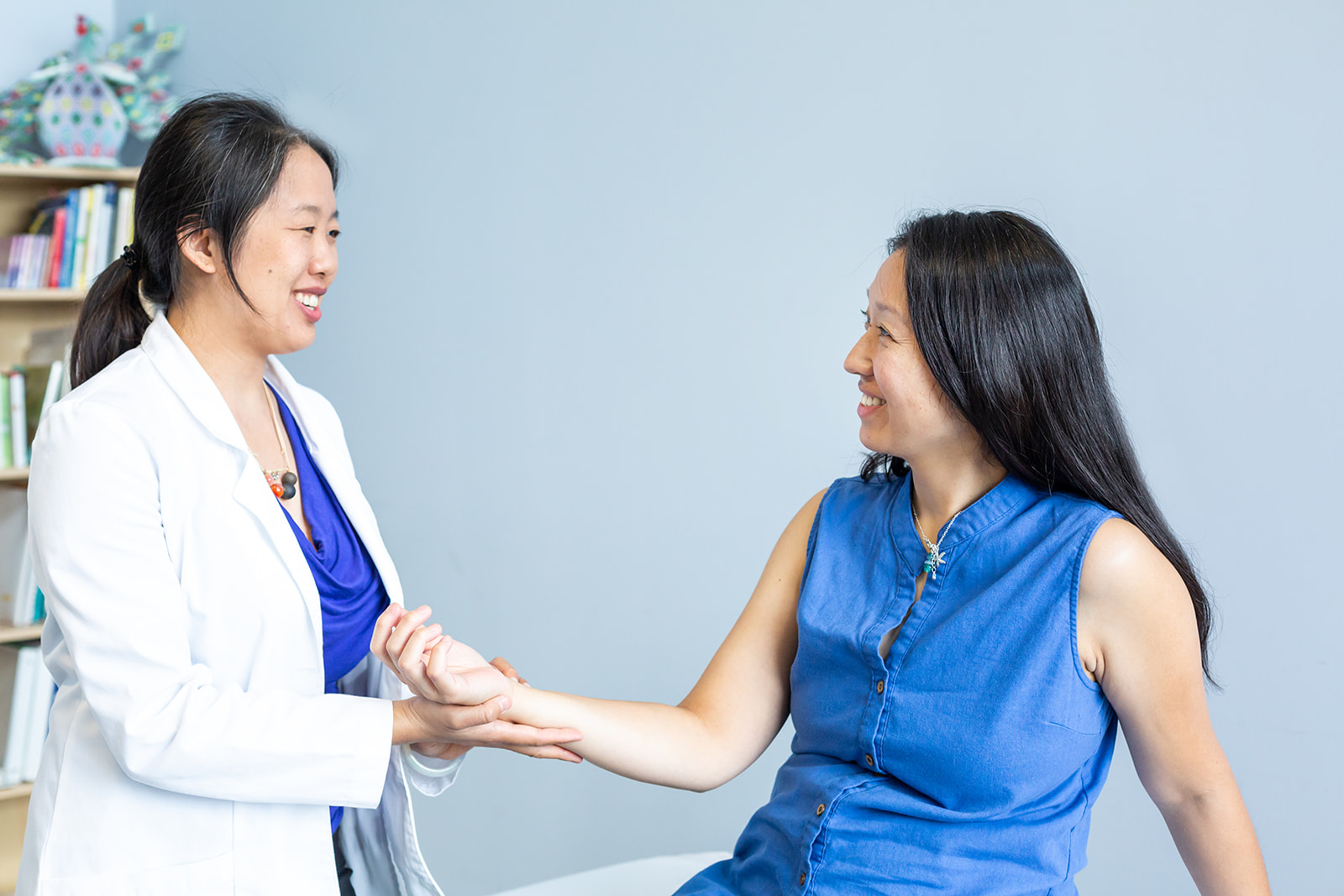TRADITIONAL CHINESE MEDICINE & ACUPUNCTURE

What can Traditional Chinese Medicine treat?
Traditional Chinese Medicine includes herbal medicine, acupuncture, acupressure, dietary therapy, lifestyle counselling, cupping, massage, and special types of meditation. Research shows that Chinese herbal medicine can be effective for respiratory issues, reproductive health, urological complaints, insomnia, chronic fatigue, digestion (IBS, IBD, nausea/vomiting, etc.), skin disorders, auto-immune diseases, and much more. At times, the effects are equal to or greater than that found for pharmaceutical treatments, and with few side effects. In oncology, Chinese herbal medicine is particularly effect for fatigue, post-treatment recovery, diarrhea/constipation, coughing or wheezing, and preventative wellness. Some herbs are well-known for their immune-boosting effects, while others have been important sources of anti-cancer medicinals.
Acupuncture is an important part of Traditional Chinese Medicine (TCM), and has been utilized for wide range of ailments for over 2000 years. In the USA, Europe, Australia, and across Asia, it is used in numerous hospitals and academic medical centres, alongside conventional medicine, with effective results in all areas of healthcare from orthopedics to gynecology to oncology to cardiology. For cancer patients, acupuncture is often used to help with the uncomfortable side effects of conventional cancer treatments, including nausea and vomiting, fatigue, pain, numbness and tingling, poor appetite, constipation and diarrhea, hot flashes, and much more. It is also excellent for the psychological side effects such as anxiety, depression, and insomnia.
What is the Chinese medicine view of health and disease?
Traditional Chinese Medicine (TCM) views organ systems of human body as a collective, and that the health of each part of the body is related to one another. In the medical theory, there is a vital force (Qi) that drives the body.
Qi consists of two opposing but also mutually supporting components – yin and yang, which when in prefect balance the person experiences good health. Disease occurs when yin and yang become imbalanced due to factors such as poor sleep, stress, lack of good nutrition, and invasion of external pathogens.
What does acupuncture do?
Acupuncture treatments involve the insertion of fine needles into specific points (acupuncture points) on the body. According to TCM theory, when acupuncture needles are inserted into acupuncture points, it serves to stimulate Qi and can be focused on different organ systems such that any imbalance can be corrected. This would provide the body the ability to heal from the ailment it once suffered when yin and yang were out of balance.
How does Chinese medicine and acupuncture work according to modern science?
In modern science terms, the mechanisms behind how TCM and acupuncture works are still poorly understood. However one theory states that the meridians (the pathways that run though the human body along which acupuncture points are found) correspond with the distribution of nerves in the body. Since the nervous system controls all other systems of the human body (including endocrine, digestive, immune, reproductive, respiratory and cardiovascular systems), the stimulation of the nervous system would impact overall health. Other theories suggest that acupuncture affects the endocrine system, or the fascia of the body. There are also more physical-based forms of acupuncture, such as “trigger point needling” or “dry needling”, which we offer as well (usually for pain or mobility issues).
At the Marsden Centre, we practice evidence-informed medicine, where our acupuncture treatment plans are based on not only empirical evidence from TCM, but also evidence based on scientific research. We ensure that our patients receive the safest, and most effective treatments available.
Does acupuncture hurt?
Acupuncture is usually comfortable and relaxing. Many people even fall asleep during the treatment. For those who are needle-phobic, acupuncture needles are extremely thin, even thinner than a human hair, and cause little to no sensation on insertion. We also use the very thinnest needles on new or sensitive patient.
Is Chinese medicine and acupuncture safe?
Acupuncture is remarkably safe. Both in general and for cancer patients. Serious problems arising from acupuncture are rare, and generally avoided by well-trained acupuncturists. We advise all patients to inquire into the length and depth of training of any acupuncturist they are considering working with. In Ontario, Registered Acupuncturists and Traditional Chinese Medicine Practitioners are regulated by the College of Traditional Chinese Medicine Practitioners and Acupuncturists of Ontario (CTCMPAO) and at the basic level must have at least around 2000 hours of training (usually 3 years).
For cancer patients specifically, Pauline Sok Yin Hwang, R.Ac, R.TCMP (the Marsden Centre’s Registered Traditional Chinese Medicine Practitioner and Acupuncturist) has extensive post-graduate training in cancer-focused acupuncture and Chinese herbs, and follows international standards for oncology acupuncture safety. Only high-quality, sterile, single-use disposable needles are used, following official Clean Needle Technique. We use a variety of needling and non-needle techniques according to each patient’s specific situation, comfort, and safety requirements. We also use the latest available scientific evidence to make sure our herbal and dietary recommendations do not interact negatively with your other medications, including chemotherapy drugs or hormone therapy.
What can I expect for my first treatment?
An initial TCM consultation usually includes background questions about your health and examination of your tongue, pulse, abdomen, and other physical signs to determine the TCM diagnosis. It typically runs 90 minutes and includes (time-permitting) an initial acupuncture session. Follow-up appointments normally take 45-60 minutes including a brief re-assessment and acupuncture session. Depending on your specific condition, the recommended initial course of treatment may last anywhere from 5 to 10 sessions.
The Marsden Centre’s TCM and Acupuncture services are provided in cooperation with Oncology Acupuncture Toronto. If you have any concerns or questions about starting treatment, Pauline is offering free 15 minute consultations for new patients. You can book through our reception, or online here. Remote sessions are available by phone/online for patients who cannot attend in person.
By Pauline Sok Yin Hwang, R.Ac, R.TCMP, MMed